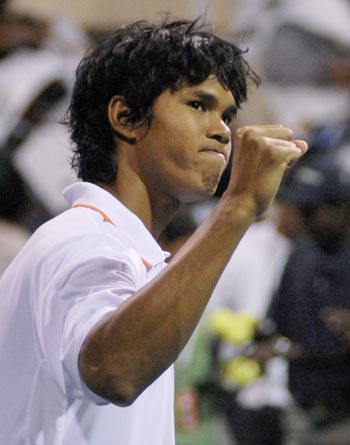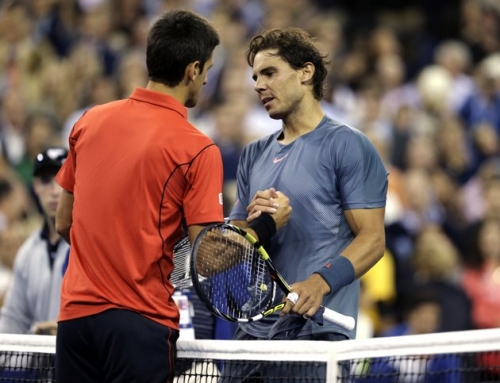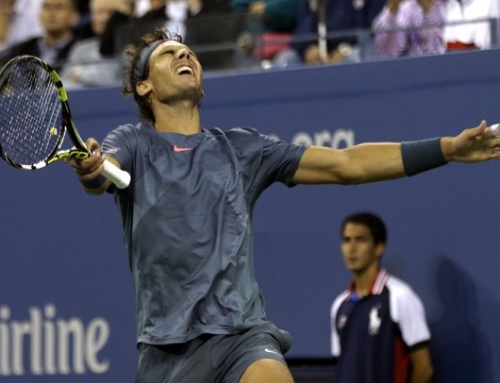 Somdev Devvarman is listed as playing for India. Born in Assam, trained in Chennai, Devvarman is the highest ranked male singles player from India. At 153 in the world, Devvarman is not well-known outside of India. But if there’s one tournament Devvarman might call home that isn’t in India, it may be the Legg Mason Tennis Classic held in Washington DC.
Somdev Devvarman is listed as playing for India. Born in Assam, trained in Chennai, Devvarman is the highest ranked male singles player from India. At 153 in the world, Devvarman is not well-known outside of India. But if there’s one tournament Devvarman might call home that isn’t in India, it may be the Legg Mason Tennis Classic held in Washington DC.
Last year, Devvarman qualified at Legg Mason in a weakened field. Familiar players that would normally play the DC event instead went to Beijing and played in the Olympics. Andy Roddick was the noted exception. It was also a coming-out party of sorts for Juan Martin del Potro who would win his fourth tournament last year, cementing his message to the world that a new talent was on the rise.
Devvarman, however, did not do too badly winning a round or two in the local event.
You would think with the international crowd that lives in the DC area that the local Indian community might come out in force to support their man, but alas, unless he’s in the top 20 or so, Devvarman makes as much news as Jesse Levine.
His support has very much to do with his resume. You see, Devvarman didn’t fully develop his skills in Chennai, a city on the southeast coast of India. He spent his formative years at the University of Virginia. Once a relative unknown in college tennis, Virginia has become something of a powerhouse, always contending for team titles.
Devvarman had a lot to do with their success. He was a three times NCAA Division 1 Men’s Championship finalist. He won it the last two years, and beat big John Isner the first year he won it. If Devvarman gets support at the Legg Mason, it’s from rabid Cavaliers fans that remember what Devvarman did for their alma mater. He attributes his success to three factors: head, heart, and feet.
Since leaving Virginia, Devvarman has been working to move up the ranks. Every NCAA champ looks to players like Mikael Pernfors as role models of how to take a college victory and translate it to success on the tour. Indeed, the college route is the unlikely route for many a talented player. With players maturing so early, going to college and playing college tennis often means you lack the talent of a Nadal, Djokovic, Murray, and a whole host of others whose world class talent shone at a time many of their colleagues were hitting the books.
At one point, when players matured later, you saw John McEnroe playing a year for Stanford, or Jimmy Connors two years for UCLA. But times have changed. For one, the top ranks of college tennis is no longer confined to Americans. For every player like John Isner, who played for the University of Georgia (Pernfors also played for Georgia), there are players like Devvarman and players like J.P. Smith of Australia (the finalist when Devvarman won his second NCAA crown). More than 50% of both the men and women’s fields in the NCAA tournament are filled with players who call some other country besides the US their home.
It says something about the growing globalization of the US that the UVA fans that come out to cheer for “Som” might be home-grown. They look past Devvarman’s heritage, his skin color, and realize even as he plays for India, he’s a Cav.
With the Legg Mason event elevated to an ATP 500 event, the caliber of the field has grown as well. Devvarman had to be wondering how he’d deal with top 20 player, Marin Cilic, a player that towers at 6’6″. He might have been concerned, but he had one reassurance. He’d played Cilic before in his homeland.
Back in early January, prior to the Australian Open, Chennai hosted a hard court tournament, and the top guy there was Marin Cilic. And who did Cilic meet in the final? None other than Somdev Devvarman. Devvarman’s route to the final appeared to show a glimmer of the talent he had. He beat Kevin Kim (who lost to Ernests Gulbis in the first round at the Legg Mason), Carlos Moya, Ivo Karlovic, Rainer Scheuttler, before losing a close one to Cilic, 6-4, 7-6(3).
He knew he could beat a player like Cilic, but then, one factor that separates the top 20 from the rest is their ability to play big points and win matches. Ask Sam Querrey who lost to Cilic at Wimbledon in five sets this year in the second round.
But this would be different. This time Devvarman came through and won 7-5, 6-4. While Querrey may have his raucous Samurai, Devvarman can still count DC as his home away from home, his local tournament, and he may one day look back at this victory as his stepping stone into greatness.





![[US Open Men’s Final] Can Djokovic beat Nadal in the finals?](https://www.essentialtennis.com/wp-content/uploads/2013/09/20130909djokovic-500x383.jpg)
![[US Open, Semis] Djokovic and Nadal to play US Open final once again](https://www.essentialtennis.com/wp-content/uploads/2013/09/20130907nadal-500x383.jpg)
![[US Open, Day 11, QF] Wawrinka upsets Murray in straight sets to make first Slam semi](https://www.essentialtennis.com/wp-content/uploads/2013/09/20130906wawa-500x383.jpg)